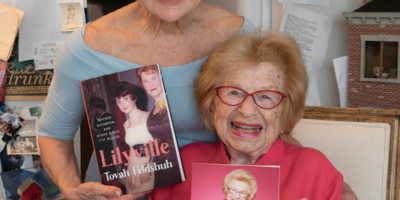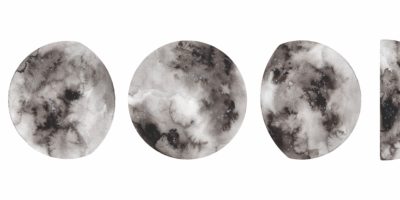
Antisemitic Good Old Boys
In Antiquities (Penguin Random House, $21), the hauntingly weird new novella by Cynthia Ozick, the title is a clever play on words. It’s nominally referring to a collection of closely guarded and deeply revered Egyptian antiquities found by the fictional narrator’s father. But it also refers to the narrator himself, Lloyd Wilkinson Petrie. He too is quite, quite old, as are most of the people around him, his home (his former boarding school, The Temple Academy for Boys—a name in no way “synagogical,” Petrie is careful to tell us—now an elder home for the school’s seven trustees) and his memories. Sometimes old memories are unreliable. Sometimes they are hard to follow. Sometimes they are wistful, nostalgic and sad. But always they are rich and include many layers of a life lived.
The novella takes the form of Petrie’s memoir, written as part of a project to gather the school memories of these trustees, each in a maximum of 10 pages. The others, Petrie grouses (he grouses about them a lot), probably hadn’t written anything. He, on the other hand, wrote more than enough for them all. Of course his memoir, his life, cannot be confined to a brief report. Certainly not when he keeps wandering and digressing and teasing and promising to tell the story of his schoolmate and object of passionate attachment, Ben-Zion Elephantin. This boy’s seeming Jewishness is expressed not just in his name but also in his habits and possessions: eating only bread, milk and eggs; refusing to remove his hat; keeping what we readers know to be tefillin and a siddur beside his bed.
Young Elephantin, it transpires, is from the very island in the Nile where Petrie’s father had found his artifacts; this coincidence elates Petrie, but also somehow augurs trouble. Petrie can’t quite figure out why Ben-Zion Elephantin abandoned him and their regular games of chess; all he knows is that this friendship made him an outcast and primed him for pranks and bullying at Temple Academy, both as a child and now, in 1949, living with those same good old (bad) boys who still delight in torturing him. They bullied him for befriending a Jewish student— not the only one at Temple, we learn from Petrie’s ongoing friendship with another Jewish pupil, Ned Greenhill, but perhaps the oddest, and certainly the most devout.
The good old boys were explicit in their antisemitism. Petrie was more subtle, but in some ways his breathtakingly casual objection to Roosevelt’s putting Americans at risk to save Jews, and his acceptance that “there is always a kernel of truth in these commonplace disparagements” of Jews makes his attitude even more insidious.
Writing in his rodent-ridden and decaying old haunt, filled with school peers and serving staff, Petrie is alone. And lonely. And, as we learn from his memoirs, he always has been, save for a passionate relationship with his beloved late secretary, Peg. His wife, Miranda, was not a true intimate companion, and their one child’s neglect and frustration with his father serve as proxy for our irritations with this meandering old man. His son does not want him, and perhaps nobody does.
This essential sorrowfulness makes the contents of Petrie’s memoir more sharply painful, especially the many moments where Petrie’s memory fails. For this wealthy, bigoted, passionate man, memory is all that he has left, and it is both unreliable and ephemeral. As is the novel itself, and all the more poignant for that.
Sharrona Pearl is Associate Professor of Medical Ethics at Drexel University. Her latest book is Face/On: Face Transplants and the Ethics of the Other.




